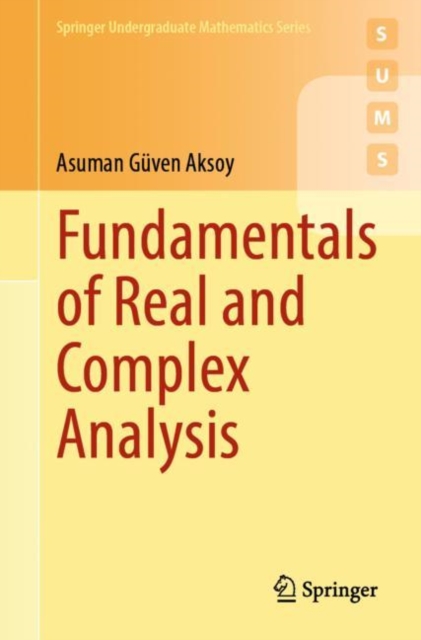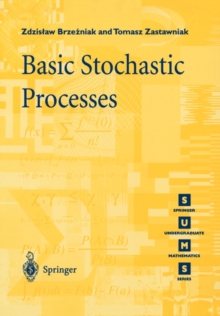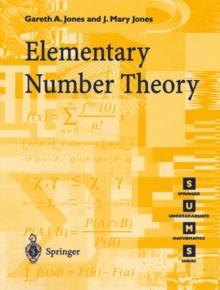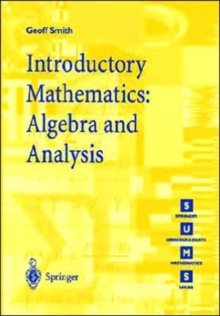
Fundamentals of Real and Complex Analysis Paperback / softback
by Asuman Guven Aksoy
Part of the Springer Undergraduate Mathematics Series series
Paperback / softback
Description
The primary aim of this text is to help transition undergraduates to study graduate level mathematics.
It unites real and complex analysis after developing the basic techniques and aims at a larger readership than that of similar textbooks that have been published, as fewer mathematical requisites are required.
The idea is to present analysis as a whole and emphasize the strong connections between various branches of the field.
Ample examples and exercises reinforce concepts, and a helpful bibliography guides those wishing to delve deeper into particular topics.
Graduate students who are studying for their qualifying exams in analysis will find use in this text, as well as those looking to advance their mathematical studies or who are moving on to explore another quantitative science. Chapter 1 contains many tools for higher mathematics; its content is easily accessible, though not elementary.
Chapter 2 focuses on topics in real analysis such as p-adic completion, Banach Contraction Mapping Theorem and its applications, Fourier series, Lebesgue measure and integration.
One of this chapter’s unique features is its treatment of functional equations.
Chapter 3 covers the essential topics in complex analysis: it begins with a geometric introduction to the complex plane, then covers holomorphic functions, complex power series, conformal mappings, and the Riemann mapping theorem.
In conjunction with the Bieberbach conjecture, the power and applications of Cauchy’s theorem through the integral formula and residue theorem are presented.
Information
-
Out of stock
- Format:Paperback / softback
- Pages:394 pages, 8 Illustrations, color; 118 Illustrations, black and white; XIV, 394 p. 126 illus., 8 ill
- Publisher:Springer International Publishing AG
- Publication Date:19/04/2024
- Category:
- ISBN:9783031548307
Information
-
Out of stock
- Format:Paperback / softback
- Pages:394 pages, 8 Illustrations, color; 118 Illustrations, black and white; XIV, 394 p. 126 illus., 8 ill
- Publisher:Springer International Publishing AG
- Publication Date:19/04/2024
- Category:
- ISBN:9783031548307










